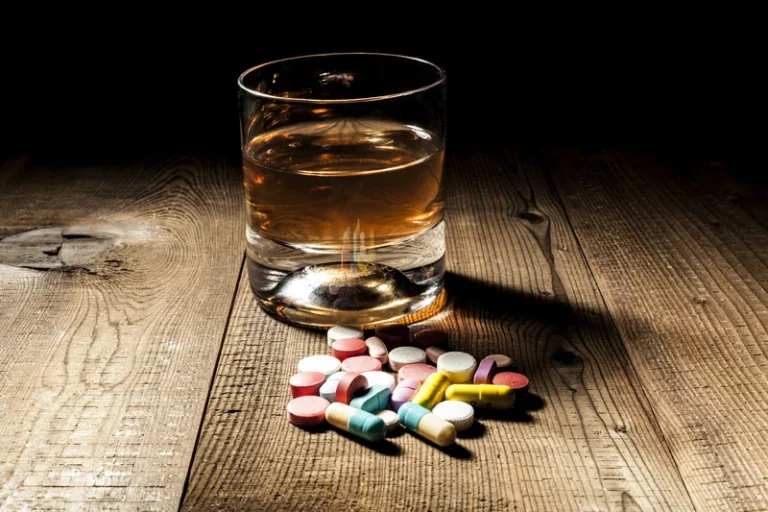Relapse Alcohol and Drug Foundation
They’ve been filling in different points of time, answering, Was he on drugs at this period of time? And they’re all basically saying at these various points of time that he always essentially had a very serious drug problem. He allegedly checked “no.” And that forms the basis for two of the charges.
Risk factors for depression relapse

SELF does not provide medical advice, diagnosis, or treatment. Any information published on this website or by this brand is not intended as a substitute for medical advice, and you should not take any action before consulting with a healthcare professional. Like everything else, it’s important to ask this question without judgment, Dr. Brennan says. If you’re concerned about sounding patronizing, you can say something like, “I don’t mean to sound preachy—has this relapse given you any insight into your addiction? I’m wondering if you’ve discovered something that can help as you get back on this path.” You can also encourage them to discuss this question with their therapist or addiction counselor.
Online Therapy Can Help
Remind yourself that you are in a different place now than you were when you began recovery. Though the steps may seem repetitive, you have changed and can benefit in new ways when you take the steps again. Going to a meeting and sharing your experience with others in recovery can help you remember that you are not alone. Sharing can help you create a connection with others and can bring a boost of confidence, knowing that if others have gotten back on track, you can, too. It can also keep you accountable and reduce any feelings of shame or grief that you may be experiencing after a relapse.
How Does Antabuse (Disulfiram) Work? And What To Avoid While Taking It
- You can’t understate the gravity of the relapse — you must admit to yourself you are using again.
- Additionally, therapy can offer a space for individual growth and the development of coping strategies, which in turn can improve interpersonal relationships.
- According to a PubMed study, these medications contribute to improvements in overall medical and mental health and quality of life.
- However, they aren’t practicing coping behaviors or proper self-care.
- You may have to experiment a bit to find new approaches that work best.
It’s an acknowledgement that recovery takes lots of learning, especially about oneself. Recovery from addiction requires significant changes in lifestyle and behavior, ranging from changing friend circles to developing new coping mechanisms. It involves discovering emotional vulnerabilities and addressing them. By definition, those who want to leave drug addiction behind must navigate new and unfamiliar paths and, often, burnish work and other life skills. Caring for a person who has problems with alcohol can be very stressful. It is important that as you try to help your loved one, you find a way to take care of yourself as well.
Breaking the Relapse-Cycle With Addiction Relapse Prevention
Negative emotions play a larger role in relapse among adults. Whether or not emotional pain causes addition, every person who has ever experienced an addiction, as well as every friend and family member, knows that addiction creates a great deal of emotional pain. Therapy for those in recovery and their family is often essential for healing those wounds. Sleep deprivation undermines recovery in indirect ways as well. And it robs people of the energy needed to rebuild their life. The causes of substance dependence are rarely obvious to users themselves.

- Whether it lasts a week, a month, or years, relapse is common enough in addiction recovery that it is considered a natural part of the difficult process of change.
- Sleep regulates and restores every function of the human body and mind.
- A good sponsor is also someone who has worked the 12 steps and can help you do the same.
- Relapse prevention therapy offers valuable tools and support to maintain recovery over the long term.
You might believe that relapse is a return to the same addictive behaviors that you have faced before. For example, if you had an addiction to opioids, a relapse is a return to using those same drugs. A relapse is a return to using harmful coping skills while in addiction recovery. Sometimes, relapsing might be a what to do after a relapse change from alcohol or drug addiction to another addictive behavior. By waiting too long, old habits and thought patterns will begin to work their way back into your life. You may even begin to feel as if it would be easier to give into your old habits and behaviors because starting recovery again seems too hard.
- Whether or not emotional pain causes addition, every person who has ever experienced an addiction, as well as every friend and family member, knows that addiction creates a great deal of emotional pain.
- One goal of treatment is to help people learn to recognize the signs of relapse during the early stages to increase the chances of a successful recovery.
- Creating a rewarding life that is built around personally meaningful goals and activities, and not around substance use, is essential.
- He allegedly checked “no.” And that forms the basis for two of the charges.
- A person who experiences a greater number of depressive episodes may be more at risk of future relapse and recurrence.
- Some people attend support groups for their entire lives and find happiness in supporting others trying to overcome addiction.
• Build a support network of friends and family to call on when struggling and who are invested in recovery. It is also important to find ways to deal with stress that don’t involve relying on alcohol, substances, or harmful behaviors. Stress relievers that might help you manage acute and long-term stress include yoga, deep breathing, meditation, and mindfulness practices. People can move on from the relapse with a stronger commitment to avoiding future relapses by avoiding or managing triggers before they occur.
Less-intensive treatment may be an option if this is your first relapse and you are in good physical and mental health, are not at risk for severe withdrawal, and have a sober support system in place. Your treatment team can help you decide whether inpatient, outpatient, or other treatment options are more appropriate for you. Online medication-assisted treatment programs are fairly new to the telehealth industry, but existing companies are expanding quickly with new programs emerging every day. It’s important to explore your options and understand the level of virtual care available so you can choose the best addiction treatment program for you.
After all, you are trying to learn healthy ways of living without alcohol or drug use during treatment. Now that you have been in addiction recovery, you likely have a strong support network to help you through. When you first began addiction treatment, you might have had no coping skills and very little support. You are attending alcoholics anonymous and other 12-step meetings regularly.
